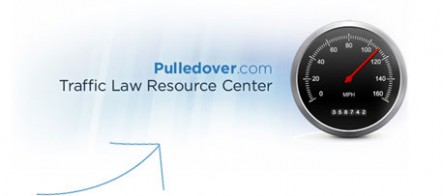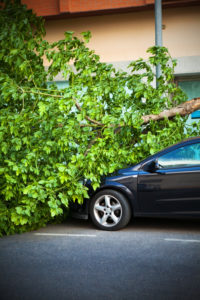Overturned DWI based on time between accident/blood drawn
A recent Missouri Western District Court of Appeals decision says a guilty verdict failed to prove beyond a reasonable doubt that a driver was drunk at the time of the accident.
The appellate court essentially determined that too much time had transpired between an accident and when blood was drawn. That fact, plus that there was no evidence that the man had been driving his vehicle when it was driven off the road or evidence of when he became intoxicated led them to overturn the trial court.
The man was clearly drunk according to witnesses but they never observed him driving his vehicle or drinking. Witnesses drove him home and later went back to the scene and called the police. Police found empty beer cans in the vehicle and went to visit the man at his home. He clearly was intoxicated and could not stand to perform a walk and turn field sobriety test.
He was arrested at 11:40 p.m. and transported to the hospital due to concerns about the level of alcohol in his system. He refused to provide a blood sample. A warrant to draw blood sample was obtained and blood was drawn at 2:47 a.m. The test determined that his blood alcohol level was .129 at that time. The man was found guilty during a bench trial for DWI.
The Western District reversed the trial judge. They held that while the State established that he was intoxicated at the time he was first observed by witness, there was no evidence as to when the accident occurred, when the man last consumed alcohol or when he became intoxicated. The trial court erred in convicting him of driving while intoxicated because the State failed to prove beyond a reasonable doubt that he operated a vehicle while intoxicated.
The court discussed the timing of the accident and the time blood was drawn to prove intoxication: “Wilhite raises one point on appeal. In his sole point on appeal, Wilhite argues that there is insufficient evidence to convict him of driving while intoxicated because the evidence failed to establish a temporal connection between Wilhite’s alleged operation of a motor vehicle and his intoxication.
“The offense of driving while intoxicated, section 577.010.1, requires proof of two elements: (1) that the defendant operated a motor vehicle, and (2) was intoxicated while doing so.” State v. Ollison, 236 S.W.3d 66, 68 (Mo. App. W.D. 2007).
Wilhite begins by arguing that there was insufficient evidence to prove that he operated a motor vehicle because no one witnessed him actually driving the truck.
However, Wilhite was the only one at the accident scene on the side of a rural roadway and told Tracy that he was the only one in the vehicle. Based on these facts, the trial court could have reasonably inferred he was operating the truck at the time of the accident. There was sufficient circumstantial evidence to establish that he operated the vehicle. See State v. Besendorfer, 439 S.W.3d 831, 836-37 (Mo. App. W.D. 2014)(holding that circumstantial evidence, including Besendorfer admitting he was the only person in the truck when he was found, was sufficient evidence for “a reasonable trier of fact to find beyond a reasonable doubt that Besendorfer had ‘operated’ his vehicle.”).
Wilhite then argues that there was insufficient evidence that he was intoxicated at the time he was operating the truck. “Proof of intoxication at the time of arrest, when remote from the operation of the vehicle, is insufficient in itself to prove intoxication at the
time the person was driving.” Ollison, 236 S.W.3d at 68. “In this remote circumstance, ‘time [is] an element of importance’ that the State must establish to meet its burden of proving the defendant drove while intoxicated.” State v. Davis, 217 S.W.3d 358, 360 (Mo. App. W.D. 2007) (quoting State v. Dodson, 496 S.W.2d 272, 274 (Mo. App. W.D. 1973).
“‘Remoteness’, as used in drunk driving cases, has two dimensions: remoteness in time from operating a vehicle, and remoteness in distance from the vehicle.” State v. Varnell, 316 S.W.3d 510, 514 (Mo. App. W.D. 2010).
When the defendant is arrested at a remote time from the operation of the vehicle, the State must show further evidence than a test that reveals the defendant was intoxicated at the time of arrest. State v. Wilson, 273 S.W.3d 80, 82 (Mo. App. W.D. 2008). “There are two rationales for this requirement, but both have the same foundation: the longer the interval between driving and testing, the less accurately the test reflects the state of the driver at the time of the arrest.” Varnell, 316 S.W.3d at 514.
The first reason that an extended time period between driving and testing can result in an inaccurate test is that the defendant may have had time and opportunity to drink alcohol after he ceased driving. Id. The second rationale for requiring additional evidence is based on the manner in which alcohol is processed by the human body. Id. One does not become intoxicated immediately upon the ingestion of alcohol. Davis, 217 S.W.3d at 361. “[A]lcohol must be absorbed into the bloodstream before it affects a person, and it can take thirty to ninety minutes before the maximum blood alcohol level is reached.”
Varnell, 316 S.W.3d at 514. “[I]t is theoretically possible for a driver who quickly ingests alcohol immediately prior to taking a short drive to be in a sober condition when driving, but, due to process of absorption of alcohol into the bloodstream, to exceed the limit afterwards.” Id.
In this case, Wilhite was dropped off at his trailer at approximately 10:30 p.m. and was first contacted by Trooper Johnson at approximately 11:30 p.m. For this at least one hour there was no testimony as to Wilhite’s actions or his access to alcohol. Ward was present in the trailer for at least a portion of that time and testified at trial, but the State never inquired as to whether or not Wilhite had access to or consumed any alcohol during that time period. Wilhite was at home for a significant amount of time, giving him ample opportunity to consume alcohol after he drove the truck but prior to his first contact with Trooper Johnson and getting his blood drawn at least three hours later. There was no evidence to establish a correlation between the blood alcohol content reflected in the blood test result and Wilhite’s blood alcohol content at the unknown time he last operated the vehicle. However, the lack of a correlation between the test result and the operation of the vehicle is not dispositive of the issues in this case.”
The case, WD80701, originated in Boone County and the appeal was heard before Division Three Judges Victor C. Howard (Presiding Judge), Cynthia L. Martin, and Gary D. Witt. The opinion was written by Judge Witt, June 5, 2018.

